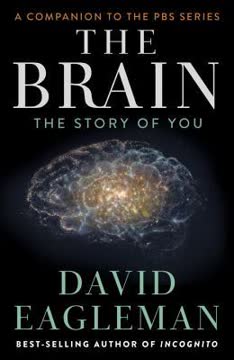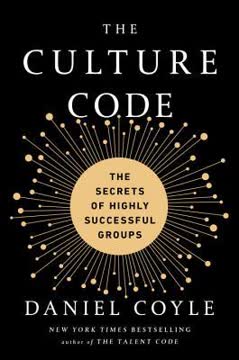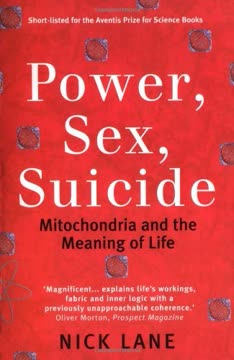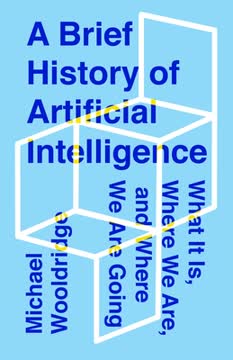Key Takeaways
1. Mystery hooks our attention and fuels curiosity
"We are drawn to the unknown. Our awe depends upon it."
The dopamine effect. Our brains are wired to seek out novelty and surprises. When we encounter something unexpected or mysterious, it triggers a spike in dopamine, the neurotransmitter associated with pleasure and motivation. This neurological response explains why we find mystery so compelling, whether it's in the form of a detective story, a magic trick, or a scientific puzzle.
Evolutionary advantage. The human fascination with mystery likely offered an evolutionary advantage. Our ancestors who were curious about the unknown were more likely to explore new territories, discover new resources, and adapt to changing environments. This innate drive to solve puzzles and uncover secrets has been a key factor in human progress and innovation throughout history.
Examples of effective mystery hooks:
- J.J. Abrams' "mystery box" technique in storytelling
- Agatha Christie's disappearance and its impact on her book sales
- The enduring appeal of magic tricks and illusions
- The viral spread of conspiracy theories and urban legends
2. Ambiguity in art creates engagement and lasting appeal
"The best art never forgets how it began. It remembers the mysteries that inspired the work."
Multiple interpretations. Ambiguity in art allows for multiple interpretations, encouraging viewers or readers to engage more deeply with the work. This open-endedness invites repeated exposure, as people return to the piece to uncover new layers of meaning or to reassess their initial understanding.
Cognitive exercise. Grappling with ambiguity exercises our cognitive abilities, forcing us to think creatively and consider multiple perspectives. This mental workout can be both challenging and rewarding, leading to a more satisfying artistic experience.
Examples of effective use of ambiguity:
- The Mona Lisa's enigmatic smile
- Shakespeare's complex and contradictory characters
- Abstract expressionist paintings
- Poems with multiple possible readings
3. Subverting expectations makes content more memorable
"We might not enjoy this kind of hook, at least not at first. We probably wish we were watching a more conventional horror movie, with Freddy Krueger and a predictable ending. But our discomfort isn't a sign of failure. It's proof that the mystery hook is working."
Cognitive dissonance. When our expectations are subverted, it creates cognitive dissonance – a mental discomfort that arises from holding conflicting beliefs or ideas. This discomfort forces our brains to work harder to process and understand the new information, leading to stronger memory formation.
Emotional impact. Unexpected twists or outcomes can elicit strong emotional responses, which are closely tied to memory formation. Whether it's surprise, shock, or delight, these emotions help anchor the experience in our minds, making it more likely to be remembered and shared.
Techniques for subverting expectations:
- The "Blair Witch Project" approach to horror filmmaking
- Unconventional narrative structures in literature
- Surprising musical compositions that break traditional patterns
- Advertising campaigns that challenge industry norms
4. Opaque characters teach us empathy and mindreading
"Literature is one of the best antidotes to the fundamental attribution error. A good novel doesn't describe its characters in terms of general traits—it reveals them as a function of their context, showing us who they are in different situations."
Theory of mind. Engaging with complex, opaque characters in literature helps develop our "theory of mind" – the ability to attribute mental states, beliefs, and intentions to others. This skill is crucial for social interaction and empathy in real-world situations.
Cognitive flexibility. By presenting characters whose motivations and actions are not immediately clear, literature encourages cognitive flexibility. Readers must constantly update their understanding of characters as new information is revealed, mirroring the process of getting to know real people.
Benefits of engaging with opaque characters:
- Improved empathy and social understanding
- Enhanced ability to consider multiple perspectives
- Greater tolerance for ambiguity in human behavior
- Reduced tendency to make snap judgments about others
5. Infinite games keep us engaged through endless exploration
"The real value in teaching these old books is to show students how to confront the unknown," Carse says. "I never cared if my students remembered what I taught. I cared about how they approached the subject. Did they accept the mystery? Did they have a sense of modesty? The best teaching is really teaching students how to live with ignorance."
Intrinsic motivation. Infinite games, characterized by continuous play without a defined endpoint, tap into our intrinsic motivation. Unlike finite games with clear winners and losers, infinite games focus on the joy of exploration and discovery, keeping players engaged for longer periods.
Adaptability and growth. Engaging in infinite games fosters adaptability and personal growth. As the "rules" or parameters of the game evolve, players must constantly learn and adjust their strategies, developing resilience and creativity in the process.
Examples of infinite games:
- Scientific research and exploration
- Artistic creation and interpretation
- Lifelong learning and personal development
- Open-ended video games and simulations
6. Embracing mystery leads to better problem-solving and creativity
"If we admit there's mystery, then we also have to admit that we don't have as much control as we'd like," Langer says. "And that's scary. So instead we just repeat our mistakes. That's the sort of behavior that mindlessness leads to."
Cognitive flexibility. Embracing mystery and uncertainty encourages cognitive flexibility, allowing us to consider multiple possibilities and approaches to problems. This open-minded attitude can lead to more innovative solutions and creative breakthroughs.
Reduced confirmation bias. Accepting that we don't have all the answers helps reduce confirmation bias – the tendency to seek out information that confirms our existing beliefs. By remaining open to new information and perspectives, we're more likely to find optimal solutions to complex problems.
Strategies for embracing mystery in problem-solving:
- Asking "what if" questions to explore alternative scenarios
- Seeking out diverse perspectives and expertise
- Challenging assumptions and preconceived notions
- Cultivating curiosity about the unknown aspects of a problem
7. Mindfulness helps us appreciate life's inherent uncertainties
"When you notice things, that puts you in the present, but it also reminds you that you don't know nearly as much as you think you know.… We tend to confuse the stability of our attitudes and mindsets with the stability of the world. But the world outside isn't stable—it's always changing."
Present-moment awareness. Mindfulness practices encourage focus on the present moment, helping us notice the constant changes and uncertainties in our environment. This awareness can lead to a greater appreciation for life's complexities and mysteries.
Reduced anxiety about the unknown. Regular mindfulness practice can help reduce anxiety about uncertainties and unknowns. By accepting that we can't control or predict everything, we can develop a more relaxed and open attitude towards life's mysteries.
Mindfulness techniques for appreciating uncertainty:
- Meditation and breathwork to cultivate present-moment awareness
- Mindful observation of everyday objects and experiences
- Journaling to explore thoughts and feelings about uncertainty
- Practicing non-judgment towards ambiguous situations
Last updated:
FAQ
What's Mystery: A Seduction, A Strategy, A Solution about?
- Exploration of Mystery's Appeal: The book examines the allure of mystery in art, literature, and life, exploring why humans are drawn to the unknown.
- Interdisciplinary Approach: Jonah Lehrer uses psychology, literature, and personal anecdotes to illustrate how embracing uncertainty can lead to deeper insights.
- Practical Applications: It discusses how recognizing and appreciating mystery can improve decision-making and creativity across various fields.
Why should I read Mystery: A Seduction, A Strategy, A Solution?
- Engaging Narrative: Lehrer intertwines stories of famous mysteries with scientific insights, making the book both informative and entertaining.
- Valuable Insights: Readers gain insights into how mystery influences aspects of life, from personal relationships to professional success.
- Practical Strategies: The book offers strategies for applying the concepts of mystery in everyday life, enhancing curiosity and creativity.
What are the key takeaways of Mystery: A Seduction, A Strategy, A Solution?
- Embrace Uncertainty: Acknowledging what we don’t know can lead to greater understanding and creativity.
- Curiosity as a Tool: Engaging with the unknown can lead to new insights and opportunities.
- Cognitive Benefits: Mystery can improve critical thinking and empathy, encouraging exploration and understanding of complex characters.
What are the best quotes from Mystery: A Seduction, A Strategy, A Solution and what do they mean?
- “The most beautiful thing we can experience is the mysterious.”: This Einstein quote suggests that mystery is essential to art and science, driving creativity and exploration.
- “Art needs surprise, otherwise it doesn’t hold an audience’s attention.”: Sondheim's quote highlights the importance of unpredictability in art, reinforcing that mystery keeps audiences engaged.
- “Not knowing is what makes you feel alive.”: This encapsulates the book’s message about the value of embracing mystery and uncertainty.
How does Lehrer define the concept of "mystery box" in Mystery: A Seduction, A Strategy, A Solution?
- Definition of Mystery Box: A "mystery box" is any contained secret that drives a story forward, creating suspense and intrigue.
- Examples in Media: Lehrer cites suspenseful elements in Star Wars and Jaws, where information is withheld to maintain interest.
- Psychological Impact: This technique engages curiosity, prompting audiences to seek answers and stay invested in the narrative.
What role does dopamine play in our attraction to mystery, according to Mystery: A Seduction, A Strategy, A Solution?
- Dopamine's Function: Acts as a neural currency, helping us locate interesting parts of our environment and enhancing focus.
- Surprise Triggers Dopamine: Unexpected events or "prediction errors" lead to dopamine spikes, increasing engagement and attention.
- Learning Through Mystery: This mechanism encourages exploration and curiosity, driving us to seek new experiences and knowledge.
How does Mystery: A Seduction, A Strategy, A Solution relate to the concept of "desirable difficulty"?
- Definition of Desirable Difficulty: Challenges can enhance learning and retention, making the process more engaging.
- Application in Education: Studies show that disfluent fonts or complex tasks improve memory and understanding by requiring more cognitive effort.
- Connection to Mystery: Engaging with difficult material, like complex narratives, leads to deeper insights and appreciation for art.
What is the Harkness method mentioned in Mystery: A Seduction, A Strategy, A Solution?
- Student-Centered Learning: Emphasizes student-led discussions, shifting focus from teacher to student engagement.
- Encourages Critical Thinking: Promotes problem-solving skills by allowing students to explore complex topics collaboratively.
- Real-World Application: Prepares students for situations requiring navigation of ambiguity and uncertainty, teaching them to embrace challenges.
How does Lehrer connect mystery to empathy in Mystery: A Seduction, A Strategy, A Solution?
- Literature and Empathy: Engaging with complex characters fosters empathy, as readers navigate their motivations and emotions.
- Psychological Studies: Reading literary fiction enhances understanding of others' thoughts and feelings, improving social interactions.
- Cultural Significance: Exploring human behavior mysteries through literature makes us more compassionate and understanding individuals.
What role does overconfidence play in decision-making, according to Mystery: A Seduction, A Strategy, A Solution?
- Bias in Judgments: Overconfidence leads to poor decision-making, especially in fields like sports management.
- Ignoring Uncertainty: Often results in ignoring the inherent uncertainty in predictions, failing to recognize knowledge limits.
- Need for Humility: Advocates for acknowledging ignorance, recognizing complexity for better outcomes.
How does Lehrer connect mystery to creativity in Mystery: A Seduction, A Strategy, A Solution?
- Mystery as a Catalyst: Stimulates creativity by encouraging exploration and questioning.
- Art and Ambiguity: Great art contains layers of ambiguity, inviting interpretation and deeper reflection.
- Curiosity Drives Innovation: Curiosity, fueled by mystery, is essential for creative thinking, allowing discovery of new possibilities.
What is the significance of the Voynich manuscript in the context of Mystery: A Seduction, A Strategy, A Solution?
- Enduring Mystery: An unsolved mystery that captivates scholars, highlighting the allure of the unknown.
- Human Fascination with Codes: Reflects the desire to solve mysteries, leading to both frustration and fascination.
- Lessons in Interpretation: Illustrates the importance of interpretation and knowledge limits, reminding that some mysteries hold value even if unsolved.
Review Summary
Mystery by Jonah Lehrer explores the psychological appeal of mysteries in various aspects of life. Readers found the book intriguing, with engaging anecdotes and research on topics like sports, music, and education. Many appreciated the insights into human behavior and curiosity. Some felt the book lacked depth or organization, while others found it inspiring and thought-provoking. The writing style was compared to Malcolm Gladwell's. Overall, reviewers enjoyed the book's exploration of why humans are drawn to the unknown, though opinions on its effectiveness varied.
Similar Books










Download PDF
Download EPUB
.epub digital book format is ideal for reading ebooks on phones, tablets, and e-readers.







